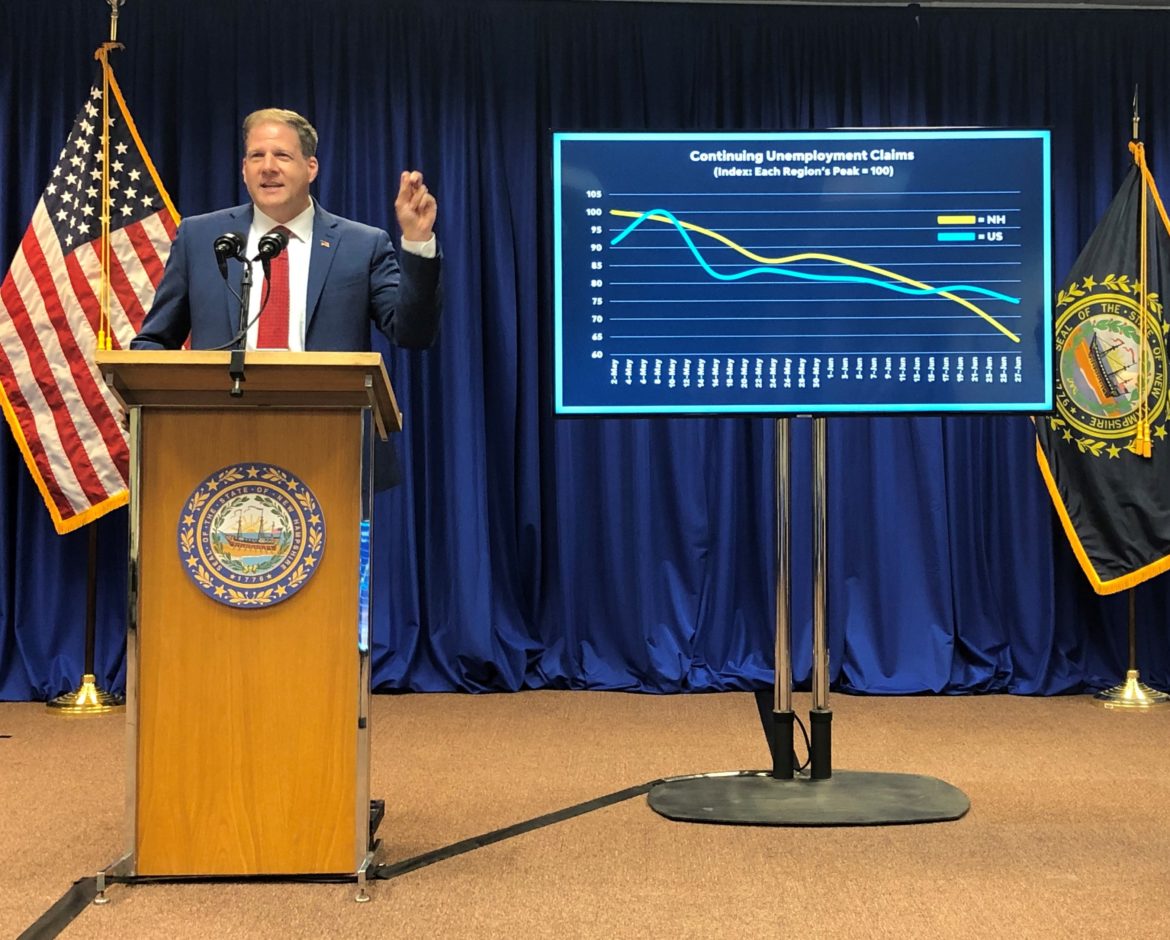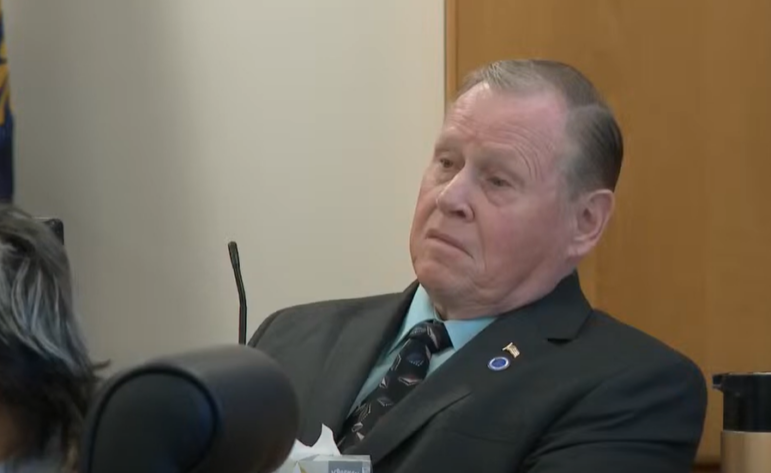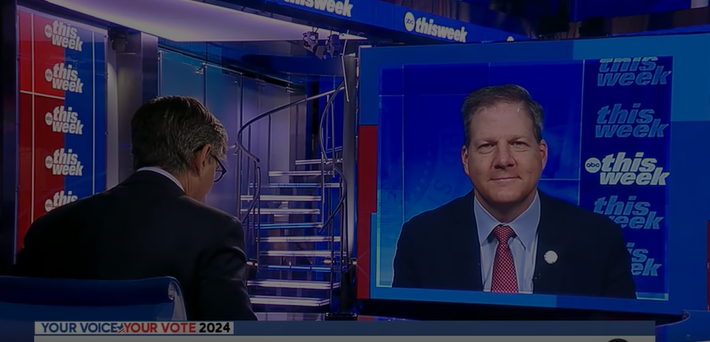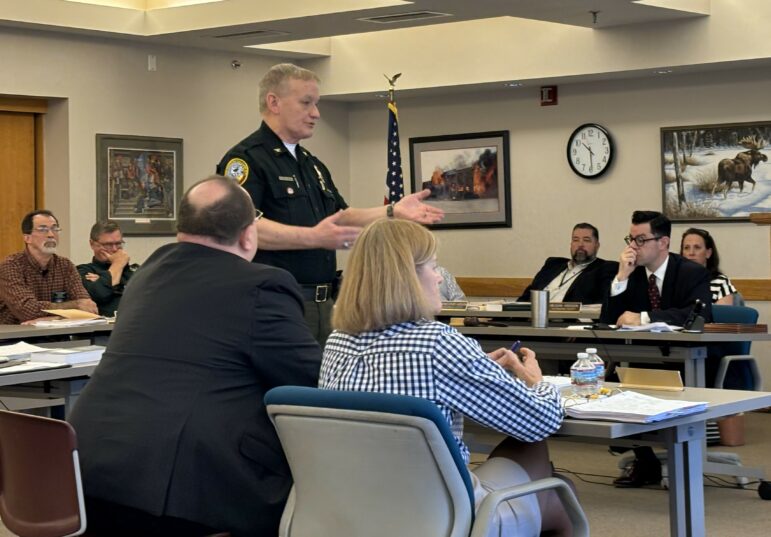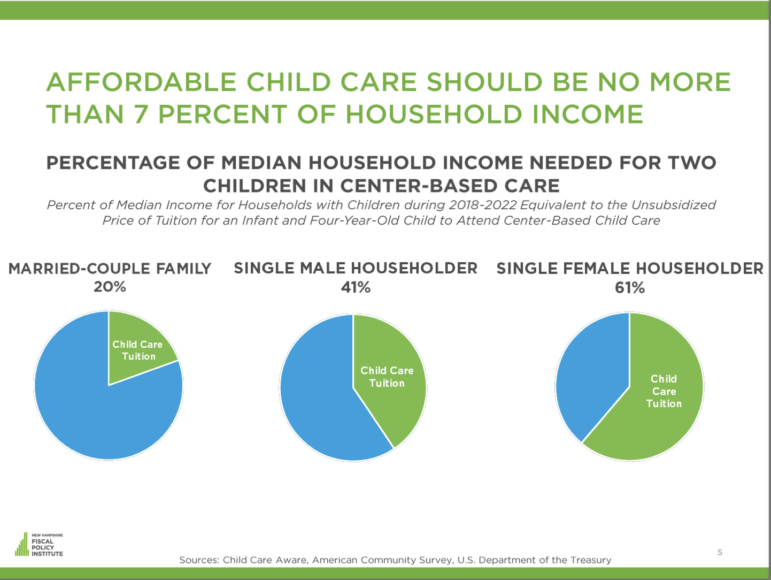By PAULA TRACY
and CATHERINE McLAUGHLIN, InDepthNH.org
CONCORD – Schools bells may or may not ring across the state this fall as a new school guidance for kindergarten through grade 12 public schools was unrolled on Tuesday featuring “flexibility” at its heart, Gov. Chris Sununu said at his regular news conference.
Based on recommendations of START, the School Transition Reopen and Redesign Taskforce which took input from tens of thousands of educators, parents and others, and with the approval of state health officials, the guidance allows districts themselves to determine the best course of action as children may return to in-school learning for the first time since March.
“The state is not going to mandate that all school districts return this fall, but we are going to provide guidance that we believe will allow students to return safely. Whether a district chooses to move forward with these guidelines is up to them,” Sununu tweeted.
The guidance also doesn’t mandate wearing face masks in schools, except for visitors, Sununu said.
Reaction
The guidance drew quick response with Berlin Mayor Paul Grenier calling it “fanstastic” and the NEA-NH teachers union calling it “scary” for teachers and students.
“On its surface this has very reasonable recommendations. I agree not one size fits all,” Grenier said. “This allows the Berlin School Board to tailor recommendations for students. It’s fantastic.”
NEA-NH President Megan Tuttle said judging by the texts she received during the newscast, teachers are still worried and anxious.
“They want to be back in school but they want it done safely,” Tuttle said.
Both of the Democrats who want to challenge Sununu in November, Executive Councilor Andru Volinsky and state Sen. Dan Feltes, were critical of the plan. Republican candidate Karen Testerman questioned the use of the word “should” instead of “shall” for some items.
The 49-page guidance can be found here.
Croydon is not Manchester, Sununu said.
Thus, the need for a flexible document to cover schools of every size. Some classrooms will be in a better position to allow for social distancing, he said.
Manchester Superintendent of Schools Dr. John Goldhardt issued the following statement in reaction to Sununu’s announcement:
“That guidance merely provides a framework for the incredibly detailed process of safely reopening schools. I fully understand that staff, students and families are anxious to hear firm details, and we will provide preliminary reopening plans at the July 20 Board of School Committee meeting,” he said. “My goal is to present my full recommendation to the Board of School Committee for a vote at the first meeting in August.”
The guidance notes:
– Children may be as close as three feet from each other.
– There will be no requirement to wear masks all the time.
– Some districts may decide to offer remote learning, hybrid or alternated school days/times.
– School buses will roll but should consider designated seating. The bus driver will not be expected to enforce seating and mask-wearing.
– Children will likely be seated in school in designated seats so that if someone becomes sick, a region of a class might be isolated rather than the whole class.
– Sending kids to school with a runny nose will be strongly discouraged.
– Parents or visitors will be required to wear a face mask when they drop off or come into the school building.
– The state will provide face coverings to schools if needed.
– Teachers will be given an extra three in-service days before coming back to school to look at changes and how they will adapt.
– Family style lunchroom meals will be avoided and students will be handed food in lunch line rather than shared dishes. They can consider serving lunch in the classroom to avoid contact with other classrooms.
– School sports, band, outings or field trips will be decided on a district-to-district basis.
– Health officials from the state will be available to help schools with an outbreak.
Sununu stressed that the guidelines are mostly just that, though there are a few mandates related to safety such as people coming into schools as visitors will be required to wear masks.
Dr. Benjamin Chan, state epidemiologist, who reviewed and approved the guidance document, said he weighed the benefits of education versus the risk of public health due to the pandemic caused by COVID-19, a highly transmissible respiratory virus that has killed 395 residents.
As of Tuesday, there was one new death in the state at a long-term care facility. It was also confirmed that there were 23 new cases for a total of 6,091 in the state since the outbreak began.
Dr. Chan said the state and much of New England is doing relatively well in containing the virus, compared to the rest of the country where on an average day more than 60,000 new cases are diagnosed. The country has had more than 3.4 million cases.
Fewer than 100 of the state’s COVID-19 cases have involved children under age 10, he noted. He said the state is seeing good trends in terms of declining hospitalization rates, testing which shows fewer than 5 percent are testing positive for the virus. And Sununu said the state is in a good position with respect to materials to prevent transmission, like personal protective equipment, and hospital beds are available if there is a surge.
“We want our kids to go back to school and we have more tools,” Sununu said.
Feltes, Volinsky and Testerman
Sen. Feltes said, “With less than two months before school starts, families and teachers wanted certainty, Sununu just delivered chaos. A Governor’s job is to make tough decisions, not wait for months, and then punt everything to everyone else.”
Councilor Volinsky called on Education Commissioner Frank Edelblut and Sununu to support implementation of quality air flow systems in schools, and provide PPE for teachers and students.
Volinsky also urged that CDC guidelines and recommendations of public health professionals and teachers guide reopening plans, not politics.
“It’s New Hampshire’s education leadership. Frank Edelblut and Chris Sununu are not doing their jobs. We need to take positions. Do schools open. Do they not? That needs to be driven by public health data and nothing else. That’s not a political issue,” Volinsky said.
Karen Testerman, Republican candidate for governor stated, “The School Transition Reopening and Redesign Taskforce (STRRT) under the direction of Commissioner Frank Edelblut is to be congratulated for their product.”
“My concern is the repeated use of should and shall which becomes
mandated in policies and practice. Why aren’t these just recommendations that rely on the parents and the different school administration to determine what is best for their districts?” Testerman said.
Contact Tracing
Sununu also noted the state is considered among the best in the country in terms of tracking down those who have been exposed through contact tracing. “We are on a good path,” Sununu said.
But he warned that the state is not out of the woods yet. “We are so far from declaring any sort of ‘mission accomplished’… we have a long way to go.”
The state did report the closing of an outbreak (of three or more cases) at a long-term care facility, Salem Haven, which had 61 infections including 11 deaths, Chan said.
Now there are now five institutions facing an outbreak, a decline from more than a dozen a month ago. The state in general, “continues to show a good trend,” Chan said, “but we do watch with concern about the rest of the country.”
He said the state continues to recommend people avoid large groups, maintain a social distance of six feet, wear masks in public, and frequently wash hands.
Communication
Returning to class, a big piece of the plan is improved communication, Sununu said.
Each district will have a lead communication team designated to communicate issues related to COVID-19, he said.
“First and foremost,” Sununu said, “teachers need to understand what this new norm is.”
Masks are not going to be mandated in every aspect of the school, he said.
“We will encourage it and also understand people may have to take their masks off,” he noted.
Unemployment
The state is seeing the number of unemployed people go down from a high of 116,000 to requests last week for 73,000.
Nationally, New Hampshire is right about the middle at 9.5 percent unemployment last week.
“We are definitely on the right track,” Sununu said, “in getting the economy back.”
Sectors of the economy most impacted by the closures include restaurants, retail, clothing stores, and lodging, while grocery stores and health care/hospitals did not have as many layoffs.
A new portal to link the unemployed with work, which now has over 1,000 jobs up for grabs is at www.unemploymentbenefits.nh.gov
The National Guard has been taking unemployment calls since March but is now standing down and will be replaced by a private contractor, Sununu said.
Sununu said he shares a common goal with others about getting kids back to school. “We all share a goal in getting our kids back to school safely and believe this guidance allows schools to open but we know each school district will have a different path forward,” Sununu said.
“Instead of a one-size-fits-all approach, this is a guide that values local control, and helps each school district make the best decision for their students and teachers.”
